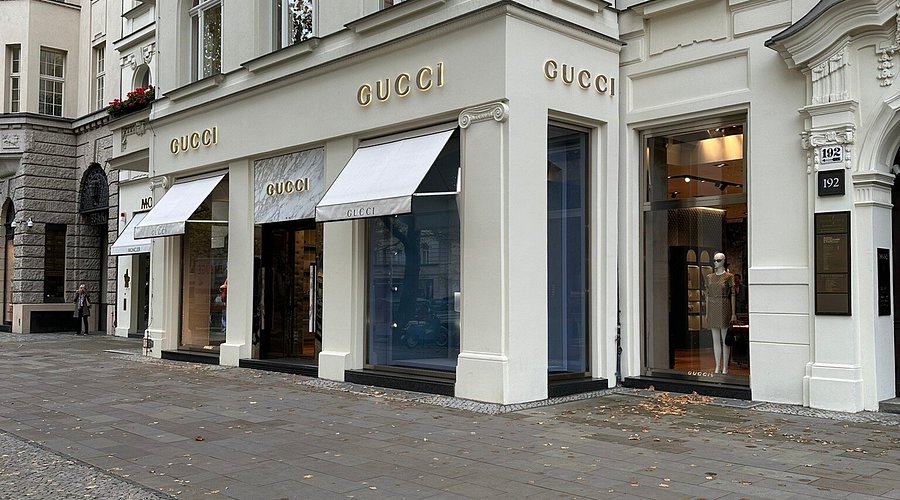Legacy Investments Shape Multi-Generational Luxury Empires
By
John Carter
Last updated:
November 20, 2025
First Published:
December 2, 2025

For the ultra-wealthy, creating a lasting legacy extends far beyond immediate financial gains. Legacy investments are designed to sustain wealth across generations while reflecting personal values and taste. These investments often combine traditional assets with luxury holdings, such as estates, art, and rare collectibles, forming portfolios that are both profitable and culturally significant.
Strategic Approaches to Multi-Generational Wealth
Constructing a multi-generational empire requires careful planning and strategic foresight. Wealth advisors emphasize the importance of diversified portfolios that balance risk with potential returns. This includes blending traditional stocks, bonds, and real estate with alternative assets like rare art, vintage automobiles, and private equity ventures. Each investment is chosen not only for its financial potential but also for its enduring appeal to future generations.
Luxury Assets as Cornerstones of Legacy
High-value luxury assets are increasingly recognized as essential components of legacy planning. Mansions, private islands, and exclusive properties offer both tangible value and symbolic significance. Similarly, rare collectibles such as fine art, jewelry, and classic cars serve as both financial instruments and cultural touchstones. These assets are often curated with an eye toward long-term appreciation and family heritage.
The Role of Family Governance
Sustaining wealth across generations requires strong governance structures. Many ultra-wealthy families establish family offices or trusts to manage assets, ensure transparency, and guide investment decisions. Governance frameworks help align family values with financial strategies, fostering a culture of responsible stewardship that can endure over decades.
Education and Succession Planning
An often-overlooked component of legacy investing is the education of heirs. Teaching financial literacy, investment strategy, and the significance of maintaining luxury assets ensures that future generations are equipped to preserve and grow the family estate. Succession planning is crucial to avoid disputes and maintain continuity, allowing the wealth to evolve without loss of purpose or value.
Balancing Tradition and Innovation
Legacy investments are a blend of traditional holdings and innovative opportunities. While estates and fine art may serve as anchors, emerging markets, tech ventures, and sustainable luxury projects introduce growth potential. Successful families balance these elements to create portfolios that honor heritage while embracing contemporary trends and innovations.
The Emotional Value of Luxury Investments
Beyond financial returns, luxury assets carry emotional significance that strengthens family identity. A historic mansion, a curated art collection, or a prized vintage automobile can become a central part of family narratives. These investments embody personal stories, cultural heritage, and shared memories, enriching the intangible legacy passed down to future generations.
Philanthropy as Part of Legacy Strategy
Many high-net-worth families integrate philanthropy into their legacy investment plans. Strategic charitable giving not only supports societal impact but also reinforces the family’s values and reputation. Foundations, endowments, and cultural sponsorships allow wealth to serve a purpose beyond accumulation, creating a lasting influence on communities and institutions.
Navigating Risks in Legacy Investments
Long-term wealth management involves navigating potential risks, from market volatility to shifting cultural tastes. Professional advisors help families mitigate risks through asset diversification, insurance, and legal safeguards. The goal is to preserve both financial value and the integrity of luxury holdings for generations to come.
The Future of Multi-Generational Luxury Empires
As global wealth expands, multi-generational luxury empires will continue to evolve. Families are increasingly integrating sustainability, technology, and cultural impact into their legacy strategies. Legacy investments are no longer just about accumulation; they represent identity, stewardship, and the creation of enduring value that transcends generations.
Subscribe to unlock premium content
Sed at tellus, pharetra lacus, aenean risus non nisl ultricies commodo diam aliquet arcu enim eu leo porttitor habitasse adipiscing porttitor varius ultricies facilisis viverra lacus neque.
A comprehensive guide on Agile development

10 Productivity tools that are worth checking out

Top 7 Must have management tools for productivity

A comprehensive guide on Agile development

10 Productivity tools that are worth checking out

A comprehensive guide on Agile development









